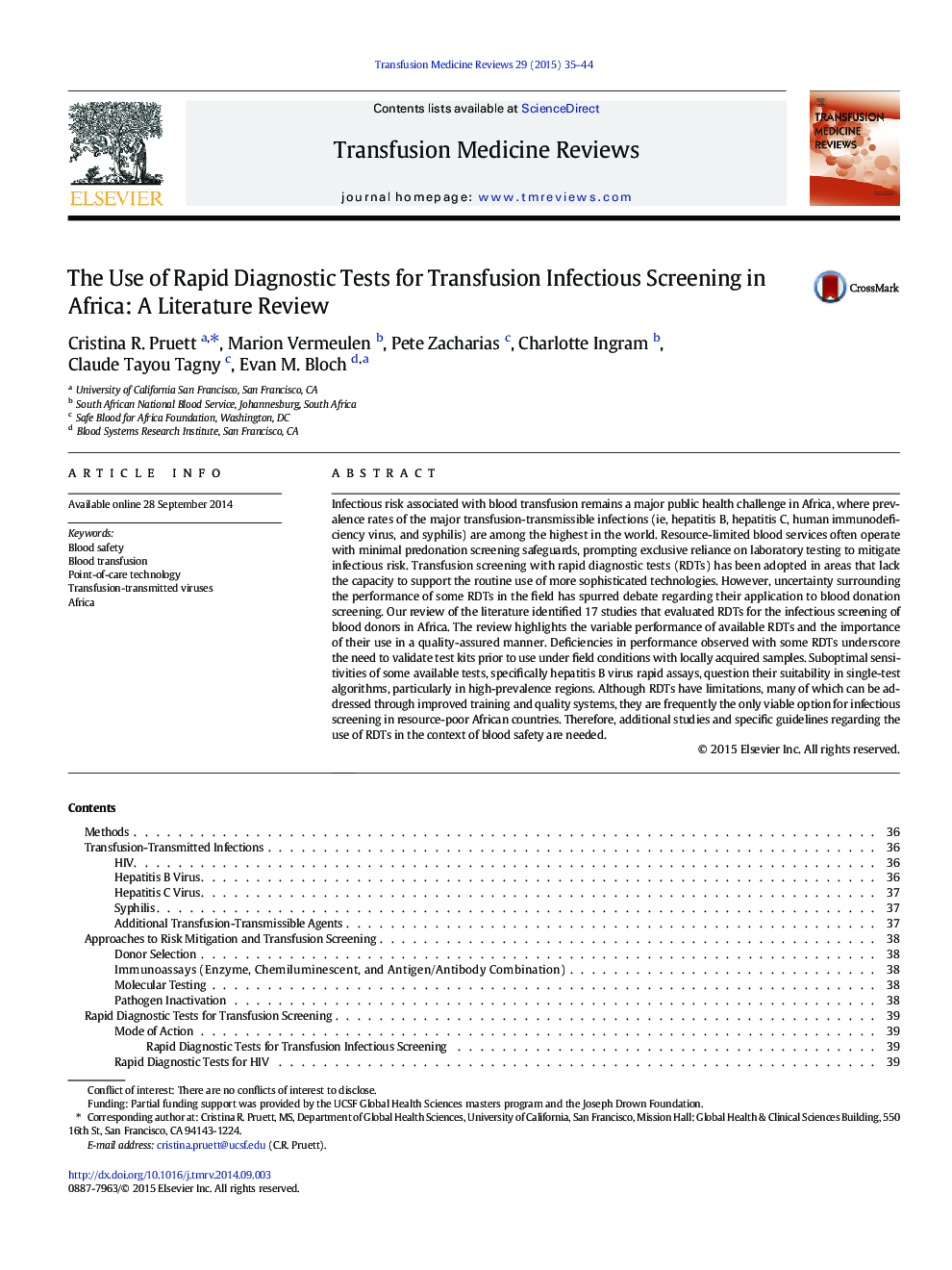| Article ID | Journal | Published Year | Pages | File Type |
|---|---|---|---|---|
| 3336646 | Transfusion Medicine Reviews | 2015 | 10 Pages |
Infectious risk associated with blood transfusion remains a major public health challenge in Africa, where prevalence rates of the major transfusion-transmissible infections (ie, hepatitis B, hepatitis C, human immunodeficiency virus, and syphilis) are among the highest in the world. Resource-limited blood services often operate with minimal predonation screening safeguards, prompting exclusive reliance on laboratory testing to mitigate infectious risk. Transfusion screening with rapid diagnostic tests (RDTs) has been adopted in areas that lack the capacity to support the routine use of more sophisticated technologies. However, uncertainty surrounding the performance of some RDTs in the field has spurred debate regarding their application to blood donation screening. Our review of the literature identified 17 studies that evaluated RDTs for the infectious screening of blood donors in Africa. The review highlights the variable performance of available RDTs and the importance of their use in a quality-assured manner. Deficiencies in performance observed with some RDTs underscore the need to validate test kits prior to use under field conditions with locally acquired samples. Suboptimal sensitivities of some available tests, specifically hepatitis B virus rapid assays, question their suitability in single-test algorithms, particularly in high-prevalence regions. Although RDTs have limitations, many of which can be addressed through improved training and quality systems, they are frequently the only viable option for infectious screening in resource-poor African countries. Therefore, additional studies and specific guidelines regarding the use of RDTs in the context of blood safety are needed.
